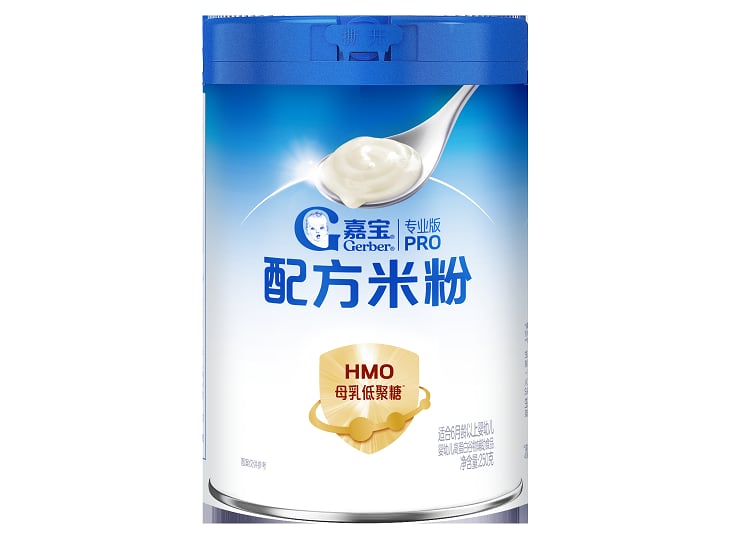Strains isolated from human breast milk are considered promising candidates for probiotic development, with numerous studies focusing on characterizing these strains for infant health applications.
One of these is Bifidobacterium longum subsp. infantis YLGB-1496, a proprietary strain registered with the China Center for Type Culture Collection (CCTCC).
It has been shown in animal studies and in vitro studies to exhibit strong oxygen free radical scavenging activities, bactericidal and bacteriostatic effects against Escherichia coli, and immune-regulating capabilities.
However, no study has yet investigated whether YLGB-1496 can enhance immune function and reduce the incidence of respiratory, gastrointestinal, and allergic diseases in children.
To address this gap, researchers in China conducted a randomized, placebo-controlled, double-blind trial between August 2024 and February 2025 to evaluate the preventive effects and safety of YLGB-1496, as well as its influence on gut microbiota and intestinal immunity.
A total of 100 healthy children of both sexes aged between 0 and 3 from three sites in Sichuan Province, China were enrolled. They were randomly and equally assigned to either the intervention group (IG) or the control group (CG).
For three months, participants in the IG were administered a daily oral probiotic sachet (Wecare Probiotics Co Ltd) containing YLGB-1496 and maltodextrin, with a total viable count of 1.5 × 1010 CFU per sachet, while children in the CG received a placebo sachet containing only maltodextrin.
It was found that the incidence of upper respiratory tract infections (URTIs) over the three-month intervention and follow-up period was significantly lower in the IG than in the CG. These results were consistent across both intention-to-treat (ITT) and per protocol (PP) analyses.
Further analyses revealed that children in the IG experienced significantly shorter durations of common symptoms such as cough, fever, dry stool (defined by Bristol Stool Chart types 1-3), and eczematous changes of the skin, compared to those in the CG, with effects observed over six months.
Effect on gut microbiota diversity, inflammatory factors
Notably, YLGB-1496 supplementation was observed to decrease the morbidity of URTIs, bronchopneumonia, and eczema, while beneficially modulating gut microbiome composition and immune function without any adverse effects.
“After the intervention, the relative abundances of Bifidobacterium bifidum, Bifidobacterium kashiwanohense PV2, and Bifidobacterium longum significantly increased in the intestinal microbiota of children in the IG, while no significant changes were observed in the CG," wrote the researchers.
“In contrast, the abundance of Bacteroides thetaiotaomicron significantly increased in the CG, but remained unchanged in the IG."
Additionally, YLGB-1496 reduced fecal levels of pro-inflammatory factors (IL-1β and IFNγ), and increased levels of immunoglobulin (IgA, IgG, and IgM) and short-chain fatty acids (SCFAs), including butyric acid and total SCFAs.
“At baseline, there were no significant differences between the IG and CG in fecal levels of TNF-α, IL-6, IL-1β, IFNγ, and calprotectin. After the intervention, the concentrations of IL-1β and IFNγ were significantly lower in the IG compared to the CG.
“Similarly, there were no significant differences between both groups in baseline fecal levels of IL-10, TGF-β, IgA, IgG, and IgM. Following the intervention, however, the IG showed significantly higher levels of fecal IgA, IgG, and IgM compared to the IG.”
At baseline, there were no meaningful differences between the IG and CG for anthropometric measurements, including height, weight, and head circumference. By the end of the study, all three growth parameters had increased, but differences between the two groups remained statistically non-significant.
Moreover, no adverse effects were reported during the trial.
“This confirms that the YLGB-1496 intervention improved respiratory, gut, and immune health without negatively affecting children’s growth.”
Respiratory and GI health
The World Health Organization estimated that in 2019, approximately 5.3m children under the age of five globally died from various causes. Among these fatalities, infectious diseases accounted for 49.2%, with respiratory (13.9%) and gastrointestinal diseases (9.1%) being the leading contributors.
At the same time, the incidence of allergic diseases has risen substantially over the past three decades, posing a major public health challenge in many developed countries, including China.
As a result, there is growing attention on strengthening the immune system, particularly in early life, when immune function is still immature and less effective against infections.
Probiotics have been shown to exert positive effects on the immune system, boost host defense mechanisms, restore balance in gut and respiratory microbiota, and reduce clinical manifestations of various diseases.
Findings from the present study are largely consistent with the outcomes reported in previous research. Importantly, the results were further supported by feedback from both caregivers and clinicians, highlighting the beneficial effects of YLGB-1496.
Nevertheless, probiotic efficacy is highly strain-specific and depends on individual strain characteristics.
“Consequently, it remains unclear which specific probiotic strains, dosages, and regimens are most effective for the prevention of respiratory, gastrointestinal, and allergic diseases,” wrote the researchers.
“Future research should consider increasing the sample size and prolonging the observation period to enhance the reliability and representativeness of the findings. Further investigation into the long-term health effects and optimal dosing strategies for YLGB-1496 in pediatric populations is also warranted,” they concluded.
Source: Frontiers in Nutrition, doi: 10.3389/fnut.2025.1585504, “Effect of Bifidobacterium longum subsp. infantis YLGB-1496 on common diseases in pediatrics: a randomized, blinded, placebo-controlled trial” Authors: Xi Zhang, et al





